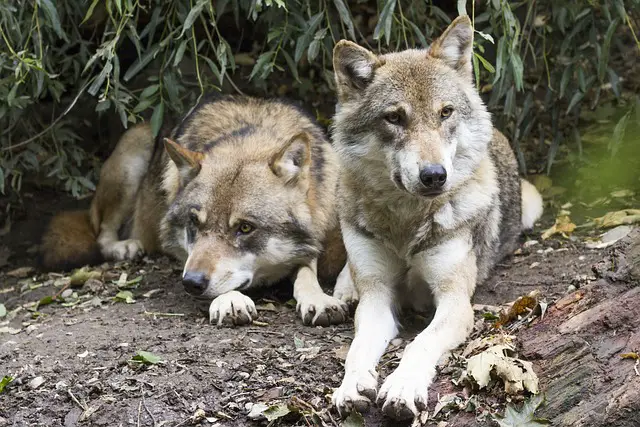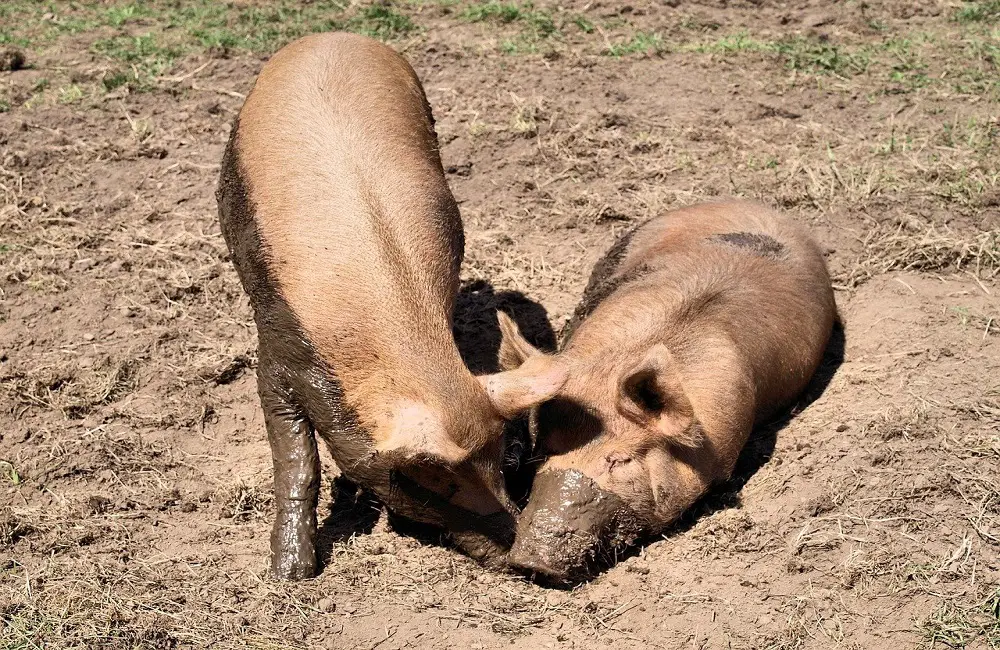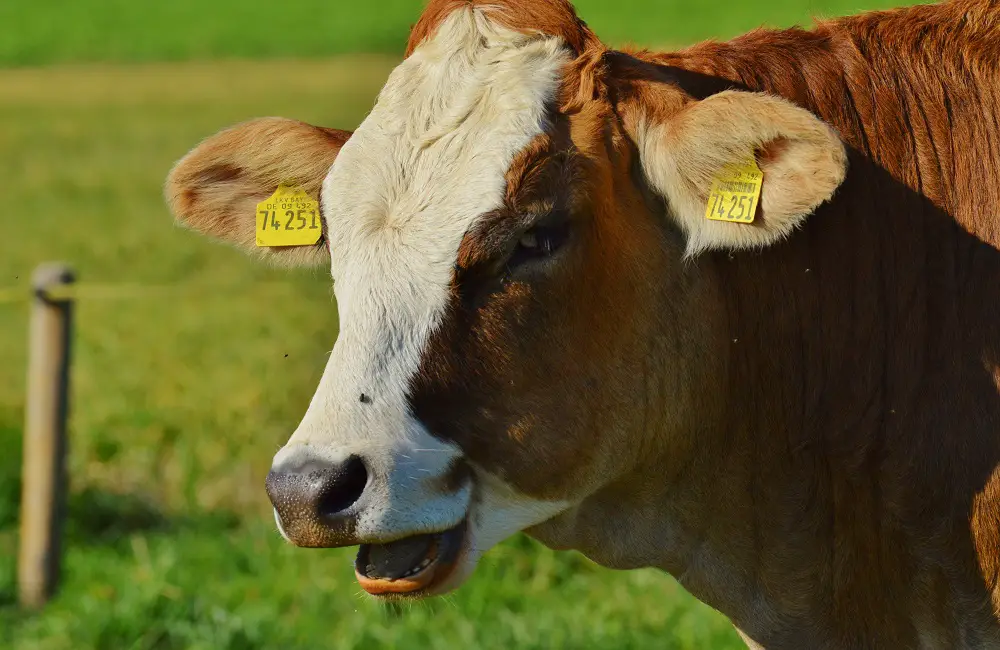Wolves’ mating behavior varies, so there’s no strict rule that all wolves mate for life. While some wolf species, such as the Arctic and gray wolf, are known for forming long-lasting pair bonds, this behavior is not universal across all individuals or populations.
So, do wolves mate for life? Some do, some don’t.
Therefore, this article looks at the complexities of wolf relationships, exploring factors like the hierarchical structure of packs, the roles of alpha males and females, and the influence of various elements on wolves’ mating behavior.
By examining these aspects, you will gain a nuanced understanding of how wolves interact.
The Wolf Pack Structure
Exploring how wolves live together in groups, known as packs, reveals a fascinating social structure. This section looks at the structure of wolf packs, explaining the role of various groups and how this hierarchy influences how wolves find and bond with their mates.
Leadership Roles: Alpha Wolves
At the very top are the alpha wolves. There’s an alpha male and an alpha female. These leaders guide the pack, making decisions and keeping things in order. It’s a bit like a wolf president and vice president.
They decide when the pack goes hunting, where they go, and how they protect their home. In some packs, only the alpha pair can mate.
Pack Members
Underneath the alphas are other wolves in the pack. Each wolf has a job, like hunting or caring for pups. This teamwork is crucial for the pack’s success. It’s like having a family where everyone helps out to make things work smoothly.
How Monogamous Pairs Can Form in a Pack
During the breeding season, which usually occurs once a year, the alpha pair engages in mating activities to ensure offspring that contribute to the continuity of the pack.
While the term “mating for life” is commonly associated with wolves, it’s essential to note that the permanence of pair bonds can vary among wolf populations. Some wolf pairs may stay together for years, while others may form new pairings over time.
If wolf pups were to die, it could potentially impact the dynamics within the pack, but it might not necessarily lead to the immediate separation of the breeding pair. On the other hand, if a wolf’s mate dies, it may experience a mourning period and then form a new bond with another wolf.
Lone Wolves and New Packs
One common reason for lone wolves is their quest for a mate. According to the Fish and Wildlife Service, dispersing wolves may cover long distances, over 500 miles, looking for suitable territory and potential mates. If a lone wolf finds a mate, it may establish a new pack and start its own family.
Instances like the death of alphas, reproductive challenges, or changes in pack dynamics may lead to male wolves looking for new partners. Adaptability becomes crucial to prevent the risk of the population dwindling.
Wolf Courting Behavior: A Delicate Dance of Connection
Wolves engage in a unique courtship dance that precedes the formation of lasting bonds. Here are some of the common behaviors across wolf species.
Howling
They do this to convey information about their presence, express their readiness for companionship, and reinforce social bonds. Howling during courtship is a collaborative effort that may involve multiple pack members.
Mutual Grooming
Wolves engage in grooming rituals as a means of bonding and demonstrating affection. This tactile interaction fosters a sense of unity within the pack and contributes to the overall social harmony, reinforcing the bonds between potential mates.
Playful Chasing
The wolves initiate this joyful pursuit, running and chasing each other in a display of exuberance. This playful activity symbolizes the beginning of a special connection.
Nuzzling
They engage in gentle rubbing of their noses, a behavior that reinforces affection and trust. This physical closeness is instrumental in enhancing connection and companionship between potential mates.
Vocalizations
These vocalizations serve as a form of dialogue, allowing potential mates to convey their readiness for companionship.
The Wolf Mating Season: A Seasonal Symphony of Connection
The timing of the wolf mating season varies, often aligning with environmental factors and the availability of resources.
In colder regions like the Arctic, wolves might experience a shorter mating season during harsh winters when resources are scarce. In contrast, gray wolves in temperate climates might engage in mating activities during late winter and early spring when conditions are more favorable.
Synchronized mating within packs is crucial for fostering a sense of unity and coordination. It ensures that wolf pups are born around the same time, promoting collective caregiving and strengthening the social fabric of the pack. Such synchronization enhances the chances of survival for the entire wolf community.
A variety of rituals and habits unfold, extending beyond basic instinctive behaviors:
Marking
When an alpha male seeks a potential mate, a distinctive ritual unfolds: he uses his acute sense of smell to identify suitable partners by sniffing their genitals.
Symbolic Biting and Emotional Bonding
Going beyond scent-based rituals, wolves often engage in symbolic biting, typically directed towards the shoulder region, to mark their mating partners.
Conclusion
Not all wolves strictly mate for life. However, the formation of enduring bonds, especially among alpha pairs, confirms the possibility that some wolves may be monogamous. Since such a pair leads the pack, it has to breed annually for the group to survive. If these female wolves fail to get pregnant, other members may do so.
In many wolf packs, including those of Arctic and gray wolves, the alpha male and alpha female often form a breeding pair. These pack leaders are the top priority in mating, reproduction, and other activities that advance the community.
FAQs
Is monogamy common among wolf packs?
Yes, they are in some packs where alpha males and females typically form exclusive pairs. The alpha pair bond contributes to the pack’s stability and enhances cooperative hunting and rearing of offspring.
Can wolves have multiple mates throughout their lives?
While wolves generally exhibit monogamous behavior, some may have multiple mates, especially if their original partner dies.
Do wolves show loyalty to their mates?
Wolves exhibit strong loyalty to their mates, and the bonds formed contribute to the overall stability and success of the pack.




